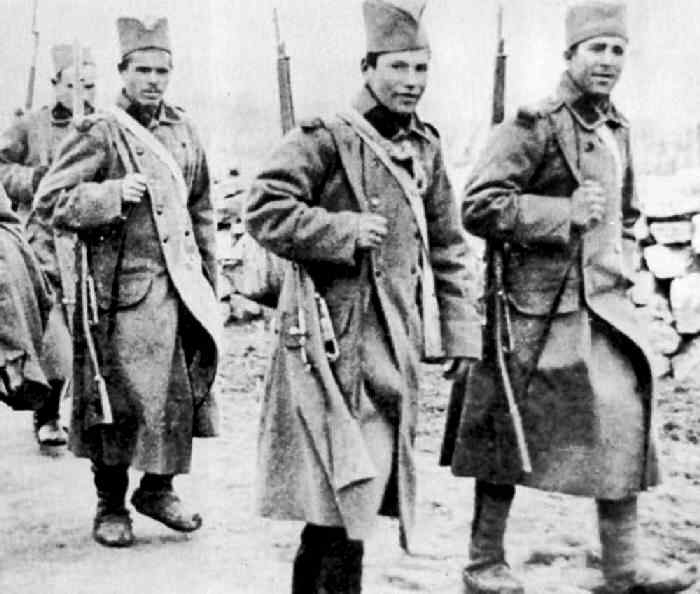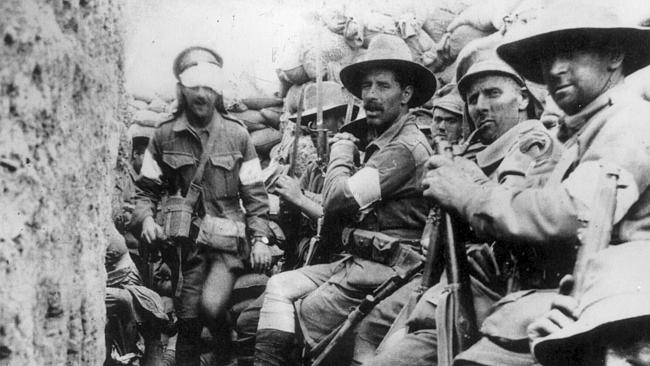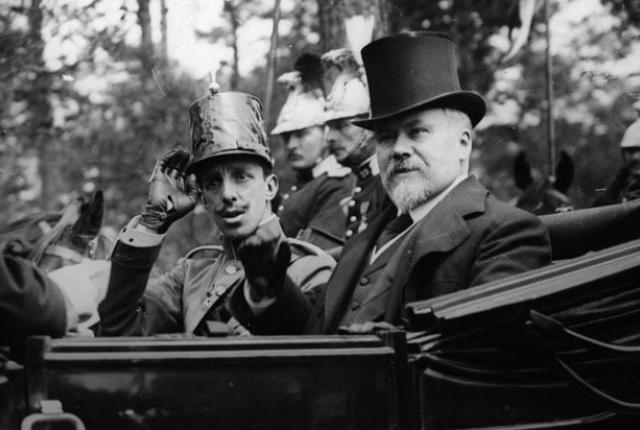From the Balkans to Gallipoli to the Eastern Front, Germany Advances.
Russia Threatens to Stop Fighting.
Special to The Great War Project.
(27-29 October) The situation in Serbia looks dire for the Serbs. The Austrian and German invasion of Serbia appears to be a success.
The French are rushing reinforcements to the Serbs, but Bulgarian forces enter the war just in time “to drive a wedge between the Serb forces and the French who were trying to come to their aid,” writes historian Martin Gilbert.
On October 27th a century ago, German forces enter Serbia, “taking 1,400 Serbian soldiers prisoner.”
Serbia is now facing disaster, writes historian Michael Neiberg. “Bulgaria’s entry into the conflict meant that Serbia now had to face a two-front war.”
“The Bulgarians invaded from the east and Austria-Hungary from the north.”
The combined forces of German, Austrian, and Bulgarian armies are overrunning Serbia.
The Serbian army and government are in retreat, fleeing west toward Montenegro and Albania. But they face terrible weather that makes the retreat even more chaotic.
Allied forces are facing mud and rain on two other fronts as well.
In Western Turkey, “on the Gallipoli Peninsula,” reports historian Gilbert, “the troops who were huddled together in crowded, wet, constantly shelled trenches had no possibility of driving the Turks off the high ground.”
“The daily ravages of gales and illness had created havoc with the fighting abilities of the Allied forces. As many as three hundred men were being evacuated sick every day.”
“Shortage of ammunition was limiting artillery fire to two rounds per gun per day,” reports Gilbert.
The issue for the British forces fighting at Gallipoli is now whether to stay or leave. The British commander on the battlefield tells London: it’s time to withdraw.
But London receives contradictory information about the consequences of a withdrawal. The British leadership’s ability to make a decision is paralyzed. So “the troops remained on the peninsula.”
On the Italian front, in the Isonzo valley and the Dolomite Mountains, reports Gilbert, “Italian forces still battling for the peaks were repeatedly driven off, or made the smallest gains for the heaviest of costs.”
And this is not the worst of it for the Allied armies. They are “faring worst on the Eastern Front, where the whole of Russian Poland had fallen under German control.”
The numbers are astounding. According to Gilbert, “the number of Russian soldiers taken prisoner-of-war in the twelve months of conflict had reached 1,740,000.”
On these days a century ago, Russia’s Minister of Finance rushes to France, traveling by sea from the northern Russian port of Archangel and then through Britain.
The goal: “To seek extended financial credits to shore up Russia’s war-making abilities.” Otherwise Russia may not be able to continue the fight.
The French President Raymond Poincare “was not helpful,” reports Gilbert. According to the official minutes of his meeting with the Russian Minister of Finance, Poincare says “I could remind [him] that neither the text nor the spirit of our alliance led us to foresee that Russia would ask us at some time to lend our credit.”
The Russian minister counters with a threat to pull out of the war if France does not provide the economic assistance.
Poincare gives way. “The prospect of the German and Austrian armies being freed to move against the west,” writes Gilbert, “was an overpowering argument. Russia remained at war, its indebtedness growing by the day.”




Time and time again I simply cannot get my head around the numbers that are reported in these posts… maybe it’s just that I don’t realize big the world is.
Can anyone really fathom that “the number of Russian soldiers taken prisoner-of-war in the twelve months of conflict had reached 1,740,000.”?
Where did the Germans house them? With so much effort going into the waging of a world war, who has the time to build enough camps to house the 1,740,000?
It’s just staggering.